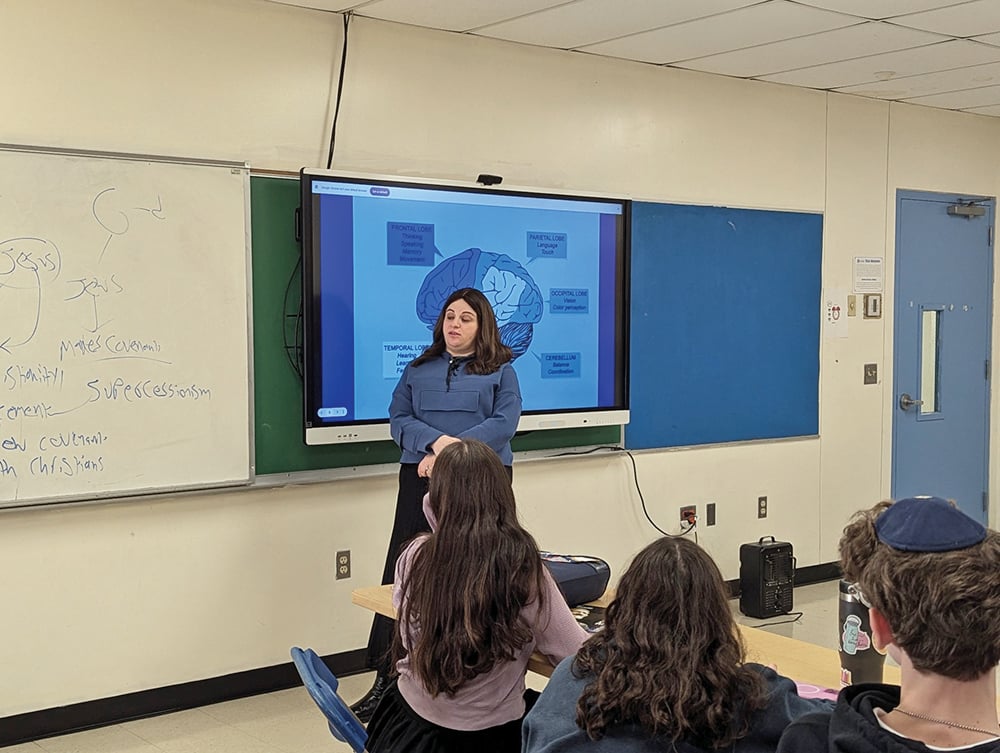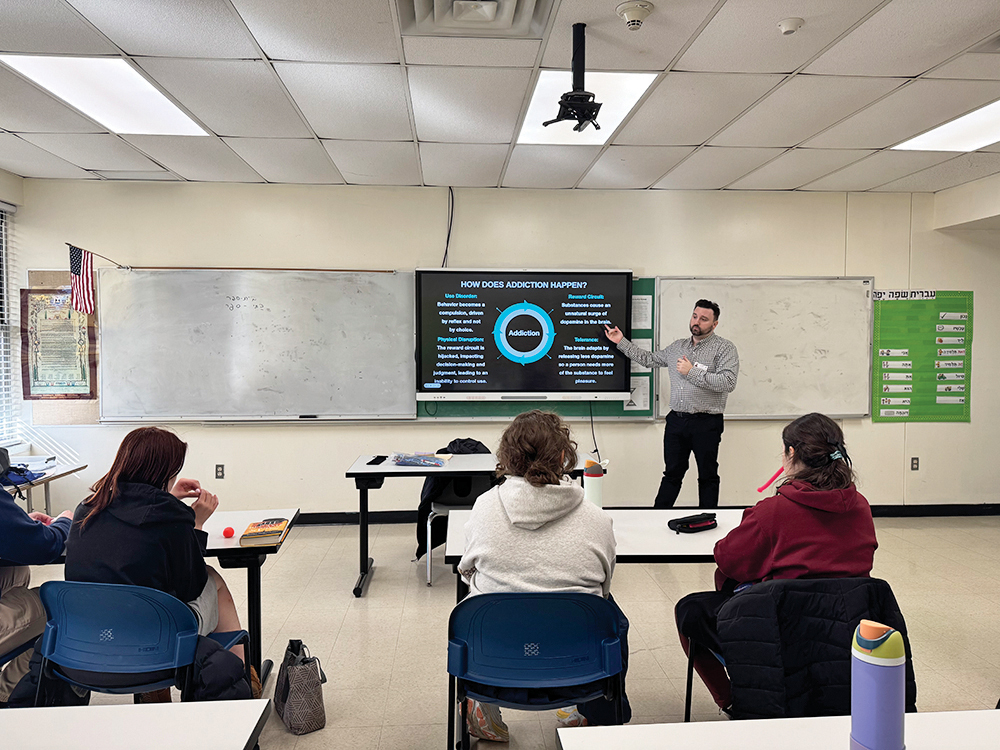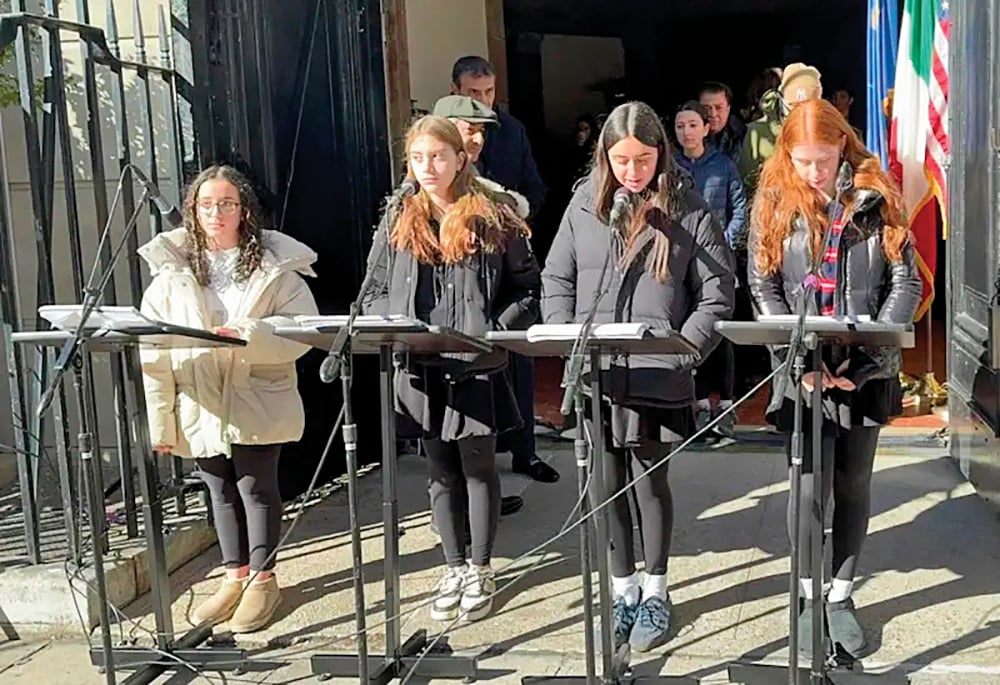
On Monday, high school students at Bi-Cultural Hebrew Academy of Connecticut participated in a substance use prevention program through the organization “Jewish Communities Confronting Substance Use and Addiction.”
Each grade level had a tailored program that focused on different aspects of prevention education. Students had the opportunity to hear someone from the Jewish community share their personal experience with addiction and they learned about the impact of substance use on individuals, families and communities. The program emphasized the importance of building healthy coping strategies, identifying risk factors and seeking help when needed.
Dr. Ariel Gershon, BCHA’s director of student services and school psychologist, who organized the event, affirmed that, “Prevention education and speaking to children about these topics early and often has been shown to strengthen protective factors against future issues.”

The ninth and 10th Grade discussion consisted of the exploration of the science of addiction, facts around substances typically encountered in high school, the impact of social media and marketing tactics aimed at youth and peer pressure. They focussed on common challenges and risks for teens, including the transition to high school. The students also took part in discussions around healthy coping skills and recognizing when a friend or loved one is struggling.
The 11th Grade program took a deeper dive into the science of addiction including protective factors and effect of age of first use. They also participated in an open discussion around what addiction looks like and the risk of developing a disorder; what to do in an emergency and how to help others. They also explored practical tools for navigating peer pressure and making positive choices.
The 12th graders focused on changes that occur after high school, and discussion around increased independence, lack of parental supervision and increased availability of substances. They also participated in some in-depth exploration of ways in which they can exercise refusal skills and/or practice harm reduction. Students also shared in dialogue around taking responsibility for one’s choices and behaviors, and understanding how to help yourself or someone else who may be struggling with these issues.
“Engaging students in open discussions,” Dr. Gershon remarked, “also helps to reduce stigma and fosters a supportive environment where students feel empowered to make informed choices.”











